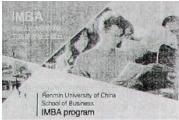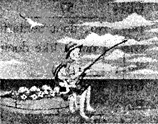摘要: from - to -
网址:http://m.1010jiajiao.com/timu3_id_2621483[举报]
From the school name _______ on the package, we guessed that it might belong to a student of our school.
查看习题详情和答案>>
| A.saved | B.marked | C.prepared | D.called |
| From:Li-Hong @ net. cn | To:jenny@compail.ca |
| Subject:School term | Date:01/09 6:00 p.m. |
| Dear Jenny, Today is my first day of new high school.Many students in our school come from big cities.They bring the high-tech things to school,for example,mobile phones,MP3 players,CD players and electronic dictionaries.They show off these things to others.What about your classmates in the US? Do they have these things? Li Hong | |
| From:jenny@compail.ca | To:Li-Hong @ net. cn |
| Subject:Repeat! | Date:01/09 8:00 p.m. |
| Dear Li Hong. We also bring these high-tech things when we are back to school.However,we often work during the holidays,and make money to buy these things.I think we need these things.We need mobile phones to contact with our friends.We also need CD players to listen to music.Electronic dictionaries can be useful for our study too. Jenny | |
【小题1】The word “high-tech” means ____________ in Chinese.
| A.高质量的 | B.高品质的 | C.高科技的 | D.高价格的 |
| A.In a magazine. | B.In a book. | C.In a guide-book. | D.On a website. |
| A.they like to listen to music |
| B.mobile phones are useful for their studies |
| C.they want to show off these things |
| D.they want to contact with their classmates |
| A.make money | B.contact with friends | C.listen to music | D.study well |
| A.Li Hong has many high-tech things like her classmates |
| B.American students often use their own money to buy the high-tech things |
| C.Chinese students work during the holidays to buy the high-tech things |
| D.all the high-tech things are useful for the students |
 To prepare Chinese students for the world, and international students for China To prepare Chinese students for the world, and international students for ChinaOur Special Program One of the earliest MBA programs in China IMBA program One of the largest business administration (管理)schoolmate networks in China Colorful courses taught by famous teachers Effective learning to put theories (理论) in management and practice together
Address; Room 0614, School of Business, Renmin University of China, 59 Zhongguancun Avenue, Beijing, 100872, CHINA Email: imba@ mc. edu. cn Telephone; +8610 62514665 Fax: +8610 82509167 For more information, please visit www. rbs. org. cn/mba/en |
| Study in the UK at Castle College Nottingham SPIIPP Pre-Masters( 硕士预备班) (September and January start) A one year course with a promise to enter Nottingham Trent University on successful completion Pre-Programme (September start) Preparation for A-Levels( 英国高级证书考试) or International Foundation Programmes ( Maths and Science) English as a Foreign Language Flexible(Mtr§rMj) start & finish dates Study from 8—36 weeks For further information: Email: minima. nguyen@ castlecollege. ac. ok Web: www. castlecollege. ac ok/international |
【小题1】One can choose all of the following programs in the "IMBA program" EXCEPT
| A.Full-time MBA (Chinese) | B.Part-time MBA( Chinese) |
| C.International MBA(English) | D.Human Resource |
A. Either September or January. B. September. C. January.
D. Any time when he is free.
【小题3】Which of the following statements is TRUE?
| A.Students all over the world can choose to study the IMBA program. |
| B.A student from Britain can enter Castle College Nottingham to study a foreign language. |
| C.Li Ming, who will have a month's vacation, can choose to study English at Castle College Nottingham. |
| D.The MBA program is the earliest in China. |
| A.English as a Foreign Language |
| B.Pre-Programme at Castle College Nottingham |
| C.The IMBA programme at Renmin University of China, School of Business |
| D.Castle College Nottingham |
| A.www. castlecollege. ac. uk/international |
| B.minhha. nguyen@ castlecollege. ac. uk |
| C.www. rbs. org. cn/mfea/en |
| D.imba@ rue. edu. cn |
To be a good teacher, you need some of the gifts of a good actor; you must be able to hold the attention and interest of your audience; you must be a clear speaker, with a good, strong, pleasant voice which is fully under your control; and you must be able to act what you are teaching, in order to make its meaning clear.
Watch a good teacher, and you will see that he doesn’t sit still before his class; he stands the whole time he is teaching; he walks about, using his arms, hands and fingers to help him in his explanations, and his face to express feelings.
There are very important differences between the teacher’s work and the actor’s.
The actor has to speak words which he has learnt by heart; he has to repeat exactly the same words each time he plays a certain part, even his movements and the ways in which he uses his voice are usually fixed beforehand(预先).What he has to do is to make all these carefully learnt words and actions seem natural on the stage. A good teacher works in quite a different way. His audience take an active part in his play: they ask and answer questions, they obey orders, and if they don’t understand anything, they say so. The teacher can’t learn his part by heart, but must invent it as he goes along.
I have known many teachers who are fine actors in class but are unable to take part in a stage-play because they can’t keep strictly to what another has written.
【小题1】What does the underlined word “gifts” mean?
【小题2】Which of the following is NOT true according to the passage?
【小题3】The skills of a good teacher are .
【小题4】From the passage, we know .
【小题5】The title of the passage is .
查看习题详情和答案>>
Watch a good teacher, and you will see that he doesn’t sit still before his class; he stands the whole time he is teaching; he walks about, using his arms, hands and fingers to help him in his explanations, and his face to express feelings.
There are very important differences between the teacher’s work and the actor’s.
The actor has to speak words which he has learnt by heart; he has to repeat exactly the same words each time he plays a certain part, even his movements and the ways in which he uses his voice are usually fixed beforehand(预先).What he has to do is to make all these carefully learnt words and actions seem natural on the stage. A good teacher works in quite a different way. His audience take an active part in his play: they ask and answer questions, they obey orders, and if they don’t understand anything, they say so. The teacher can’t learn his part by heart, but must invent it as he goes along.
I have known many teachers who are fine actors in class but are unable to take part in a stage-play because they can’t keep strictly to what another has written.
【小题1】What does the underlined word “gifts” mean?
|
|
|
|
|
To most of us, school means classes, teachers, schedules, grades and tests. But for the children at Sudbury Valley School in Massachusetts, school is very different.

Firstly, there are no lessons. All the children, aged between 4 and 19, do whatever they want. There are no teachers, only “staff members”. The idea behind this is that you do not need to make children learn, because children want to learn anyway. “You do not need to say to a three-year-old, ‘Go explore your environment.’ You can’t stop them!”says Daniel Greenberg, a founder of the school. “But if you make children do what you want all day… they will lose all taste of learning.” At Sudbury Valley School, you will find children talking, reading, painting, cooking, working on computers, studying French, playing the piano, climbing trees, or just running around. Two boys spent three years just fishing!
The other way that Sudbury Valley School is different is that the children can decide the rules. Every week, there is a school meeting where both children and staff have one vote (投票)each—even the four-year-olds. They decide the school rules, how to spend the school money, and even which staff they want and do not want anymore.
When the school first opened in 1968, people said it would never work. But today, the school has 200 students, and 80% of its students go on to college. Even the two boys who went fishing all the time have successful careers today. One of them is a musician and the other is a computer scientist.
【小题1】What's special about the school?
【小题2】What do the students do in the school?
【小题3】The school seems to believe that children________.
【小题4】The last paragraph wants to tell us that_ .
【小题5】The underlined word career in the last paragraph most probably means_.
A. family B. money C. lifestyle d. job 查看习题详情和答案>>

Firstly, there are no lessons. All the children, aged between 4 and 19, do whatever they want. There are no teachers, only “staff members”. The idea behind this is that you do not need to make children learn, because children want to learn anyway. “You do not need to say to a three-year-old, ‘Go explore your environment.’ You can’t stop them!”says Daniel Greenberg, a founder of the school. “But if you make children do what you want all day… they will lose all taste of learning.” At Sudbury Valley School, you will find children talking, reading, painting, cooking, working on computers, studying French, playing the piano, climbing trees, or just running around. Two boys spent three years just fishing!
The other way that Sudbury Valley School is different is that the children can decide the rules. Every week, there is a school meeting where both children and staff have one vote (投票)each—even the four-year-olds. They decide the school rules, how to spend the school money, and even which staff they want and do not want anymore.
When the school first opened in 1968, people said it would never work. But today, the school has 200 students, and 80% of its students go on to college. Even the two boys who went fishing all the time have successful careers today. One of them is a musician and the other is a computer scientist.
【小题1】What's special about the school?
| A.There is nobody but students there. |
| B.All the students are of the same age. |
| C.There are no classes for the students. |
| D.There are no rules in the school. |
| A.They learn everything there from the staff members. |
| B.They grow up there without learning anything. |
| C.They spend all the time with their parents. |
| D.They do whatever they are interested in. |
| A.learn best when they are doing what they want |
| B.are too young to learn anything by themselves |
| C.can look after themselves without any help |
| D.can't go to college without any hard work |
| A.the writer doesn't like the idea of the school |
| B.the school is quite successful in its work |
| C.most of the parents don't believe in the school |
| D.younger students learn better there than older ones |
A. family B. money C. lifestyle d. job 查看习题详情和答案>>